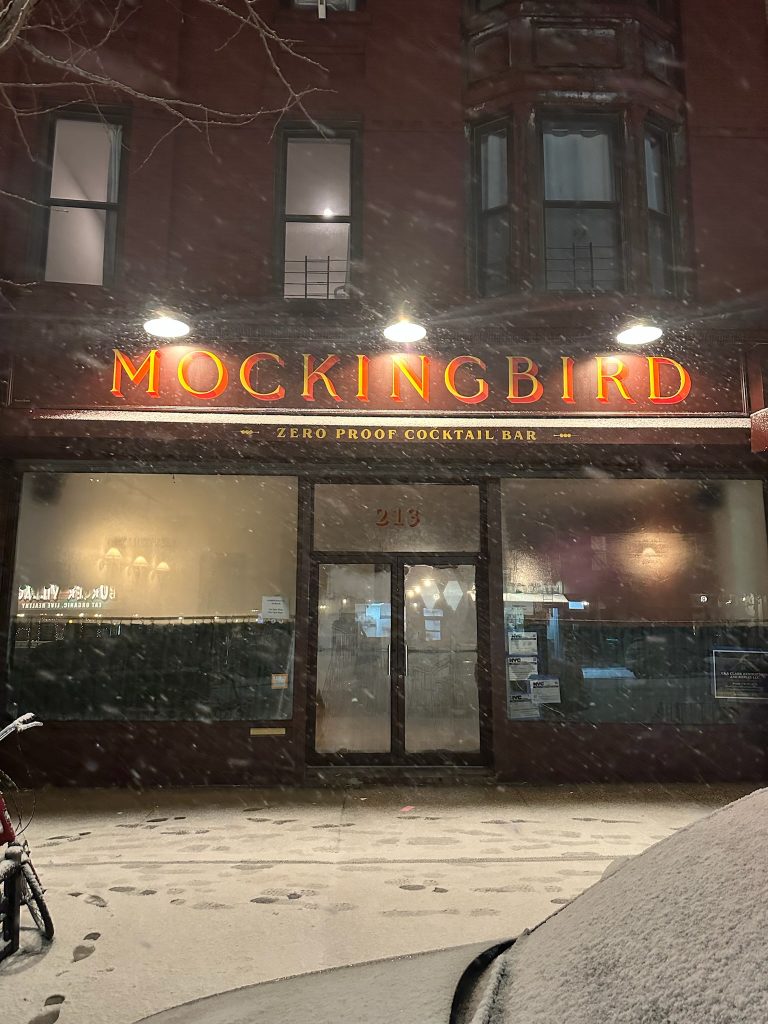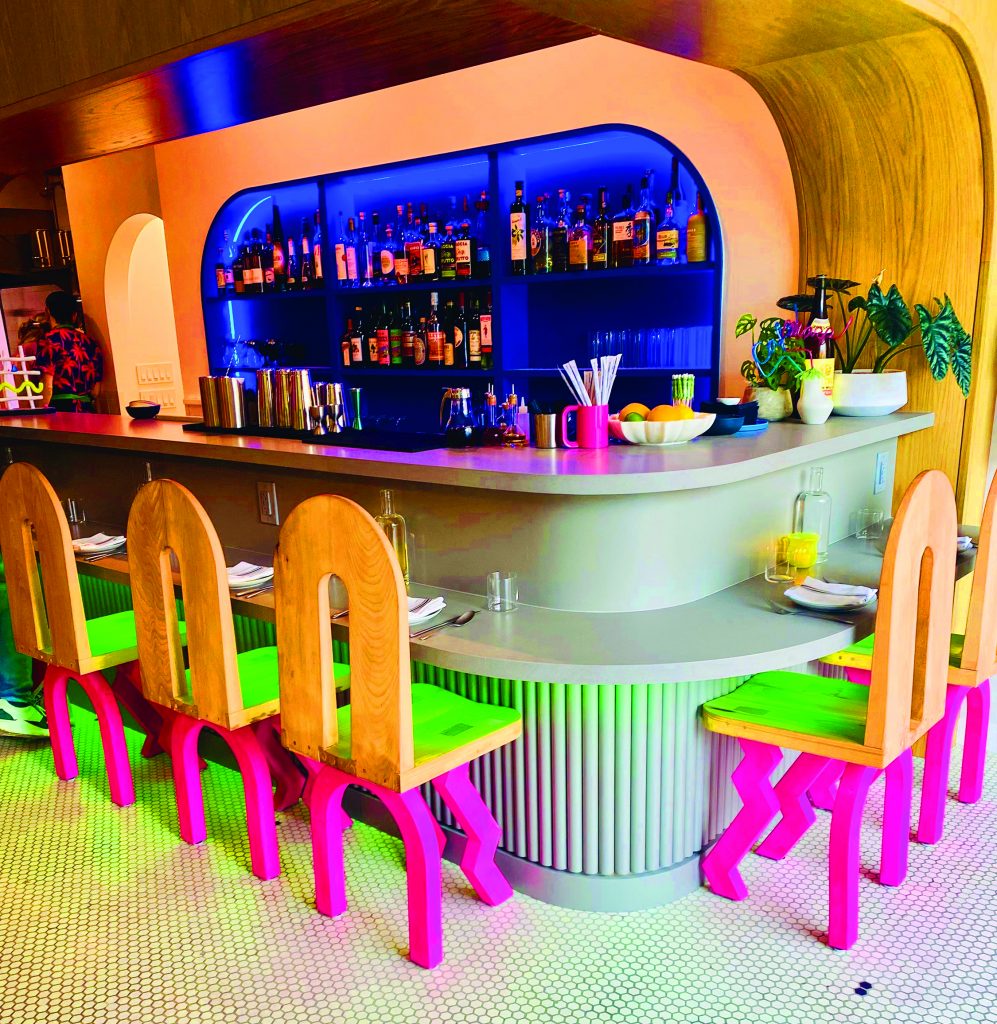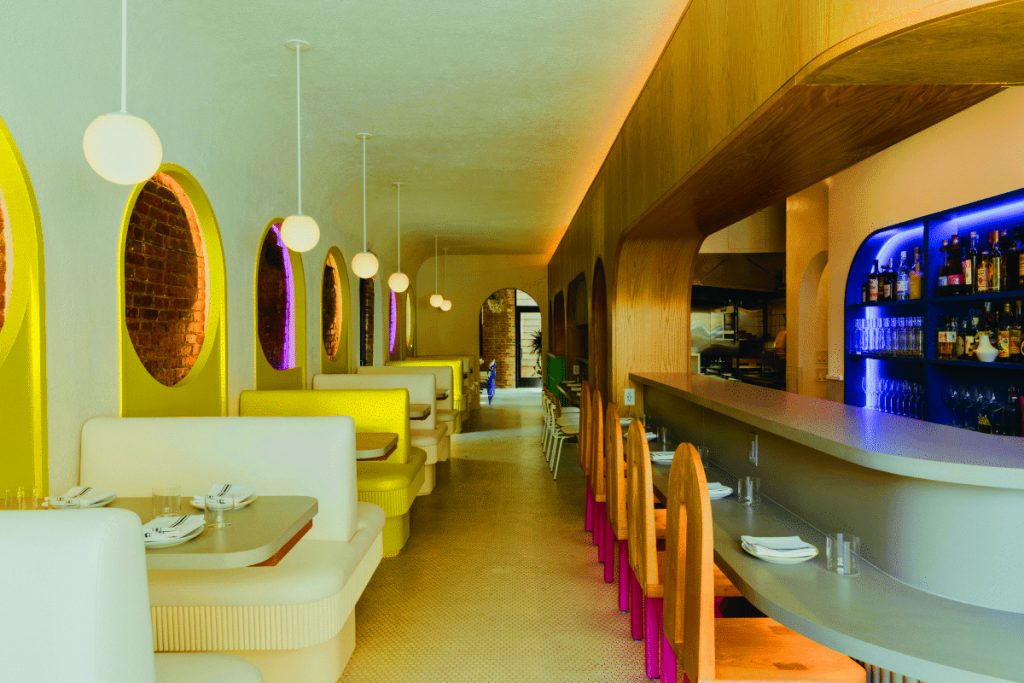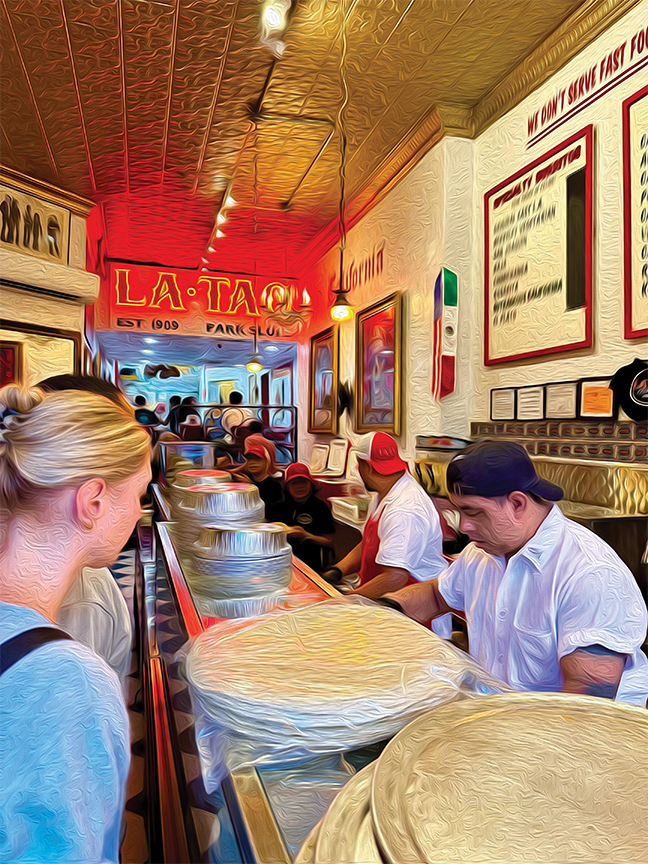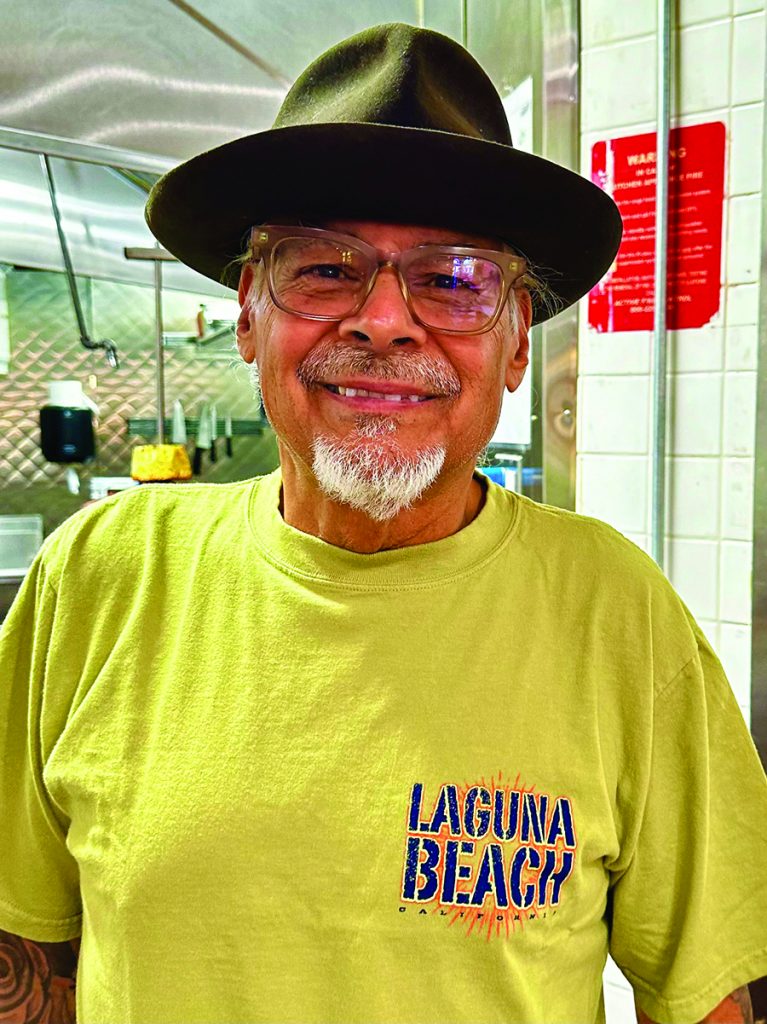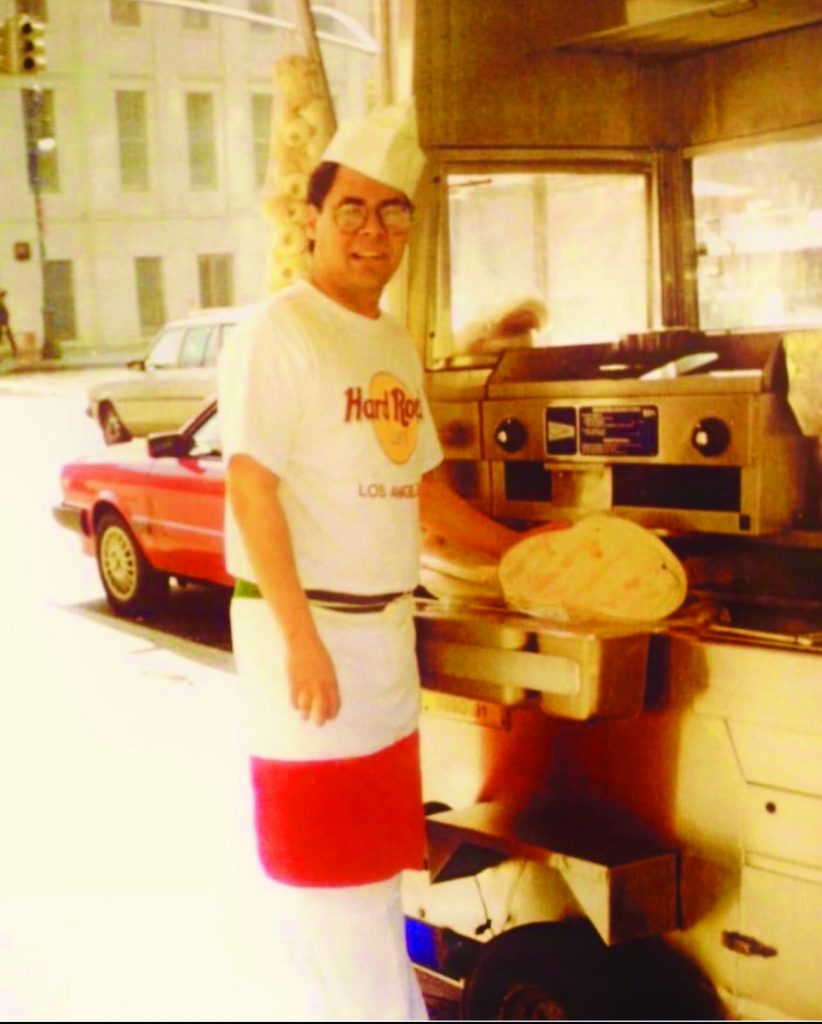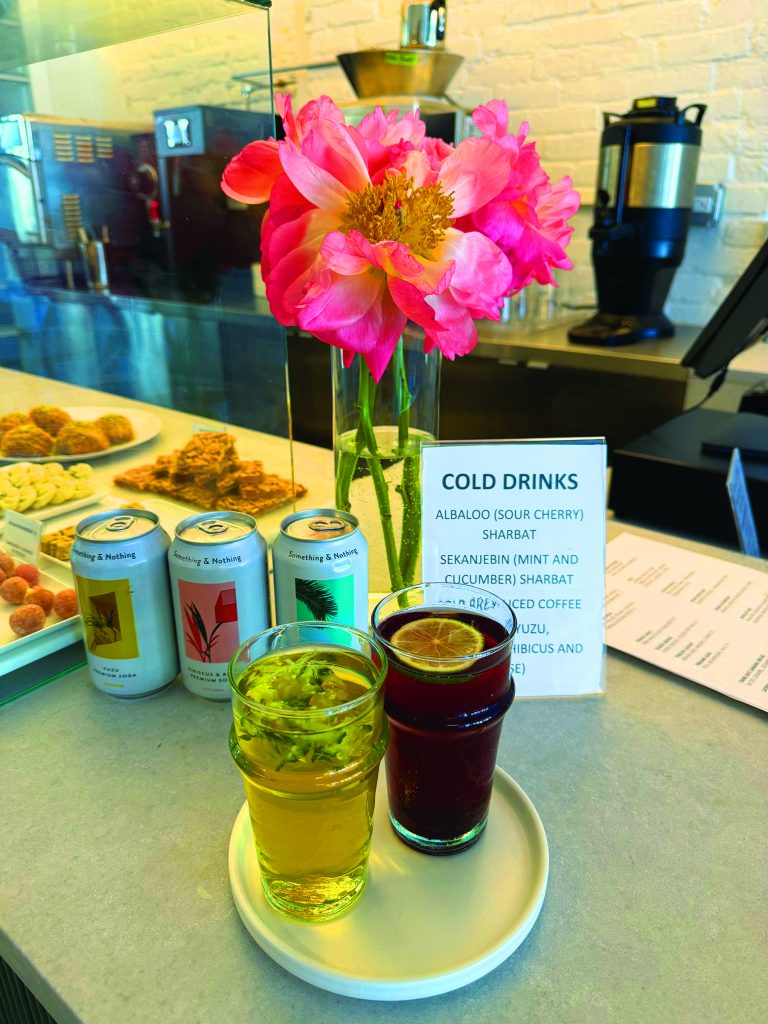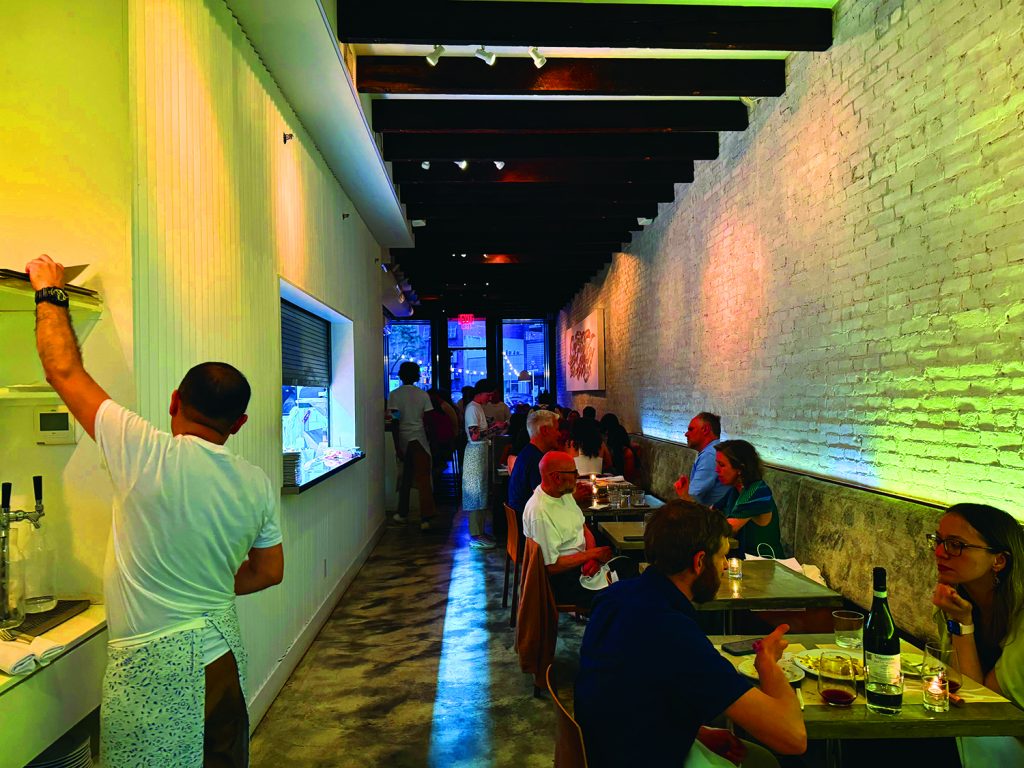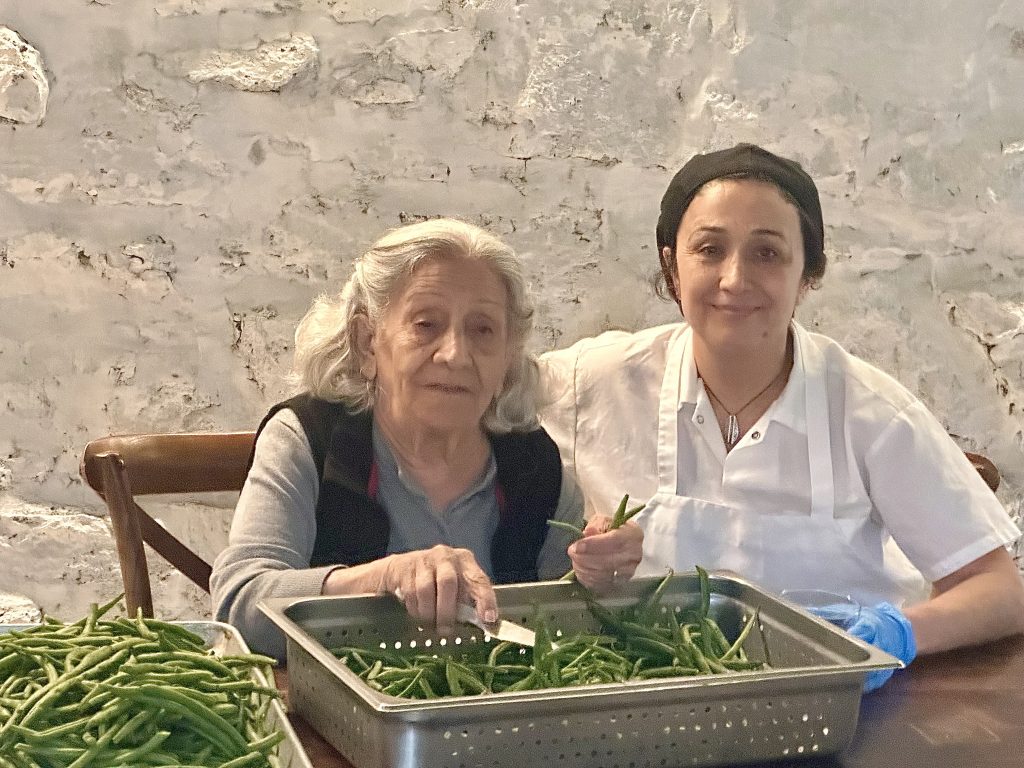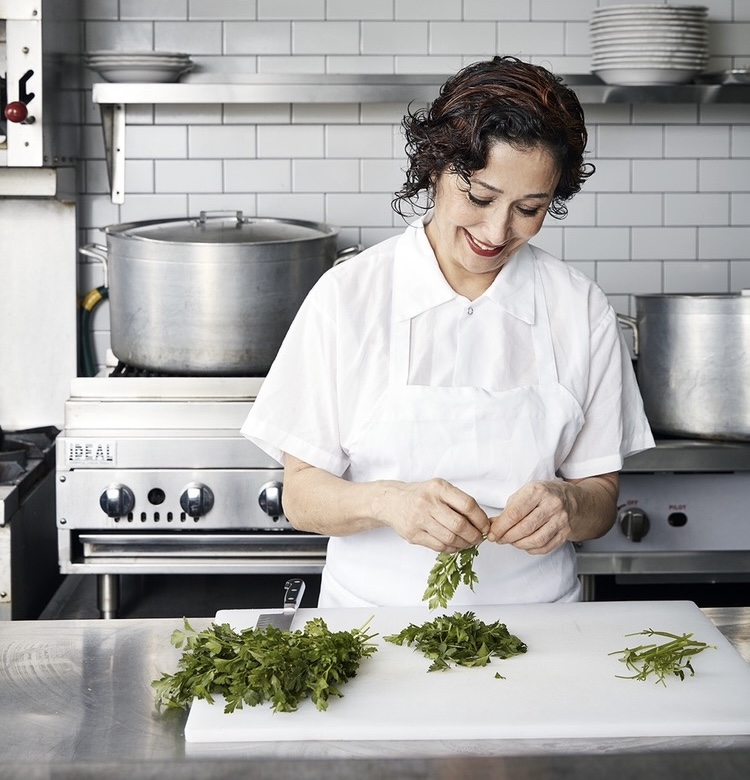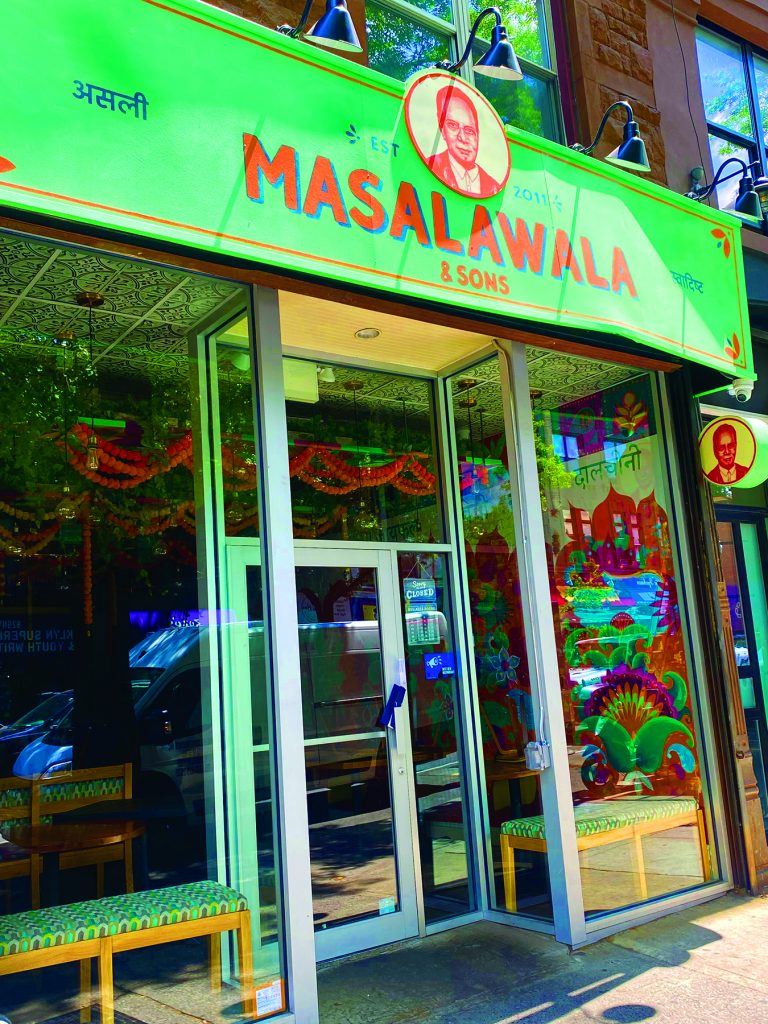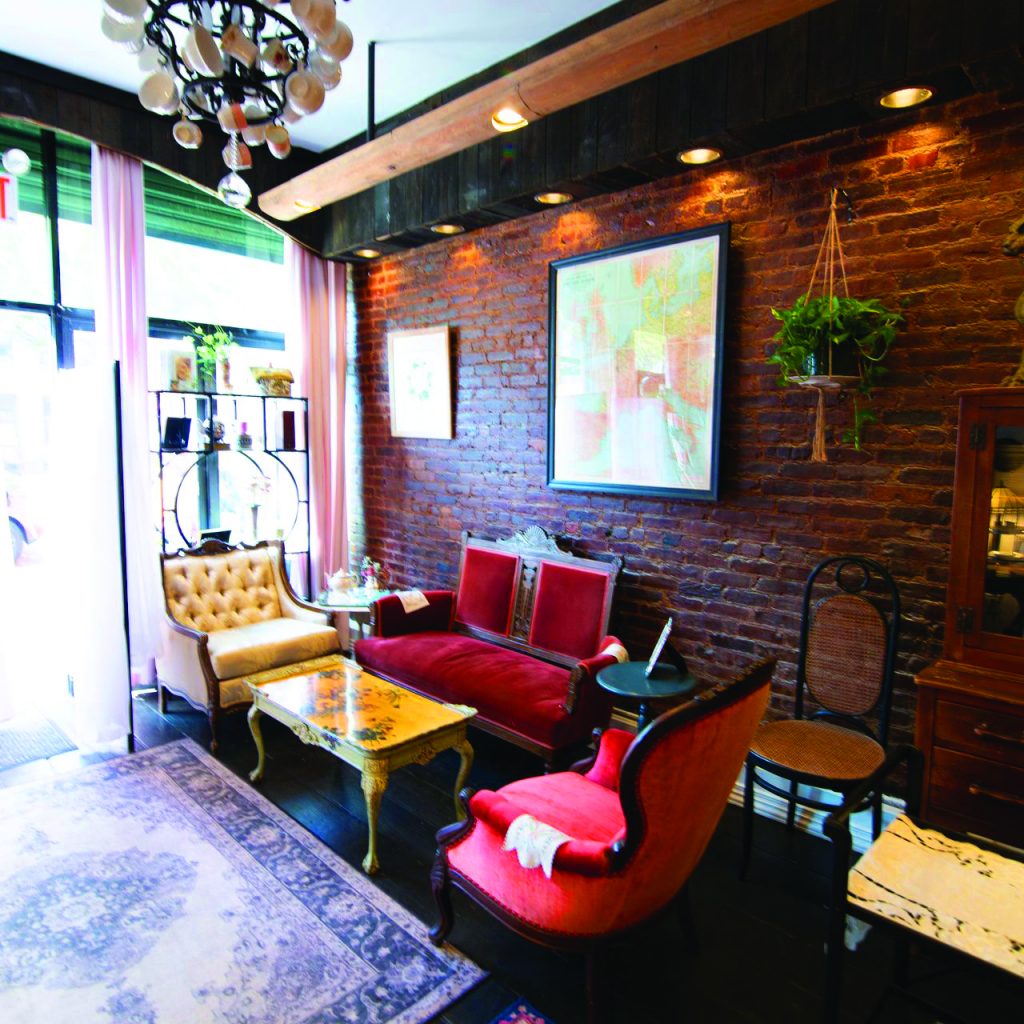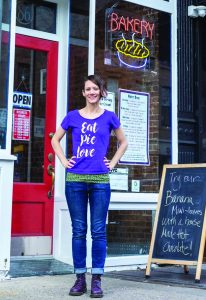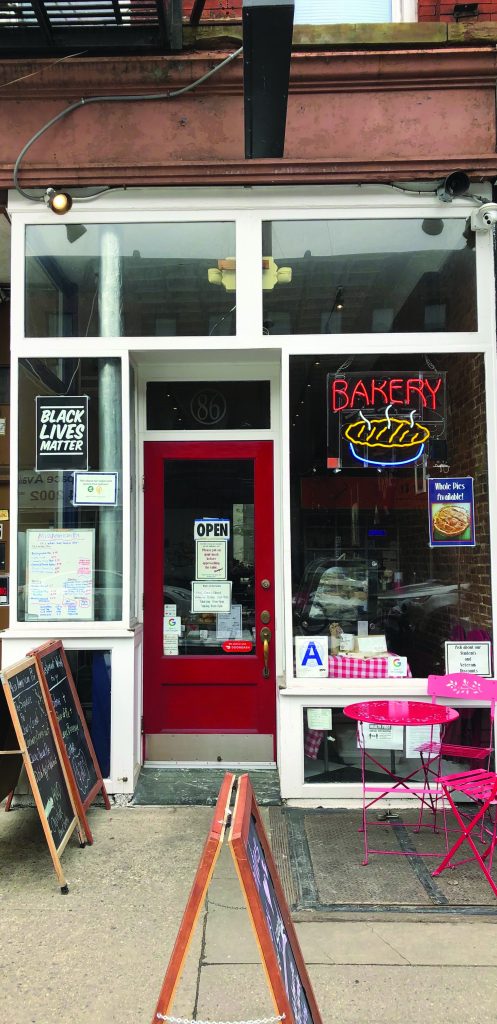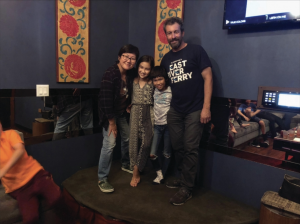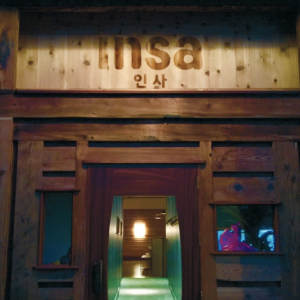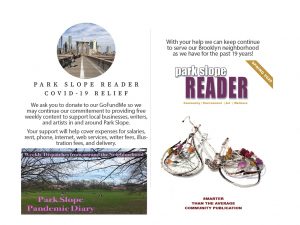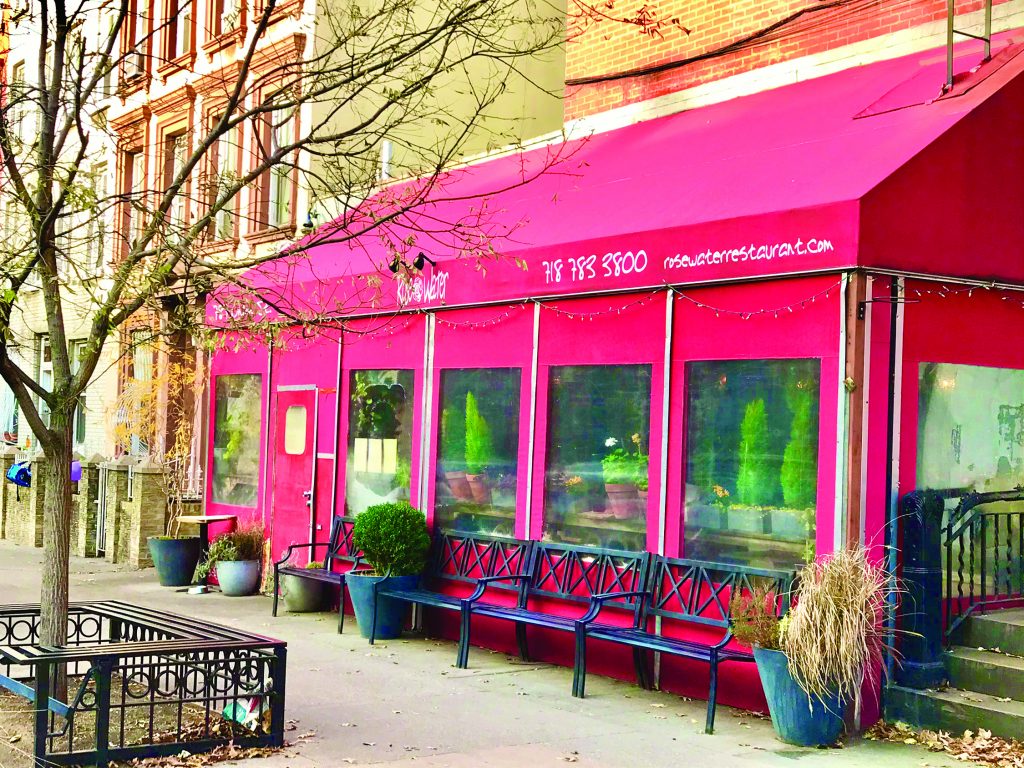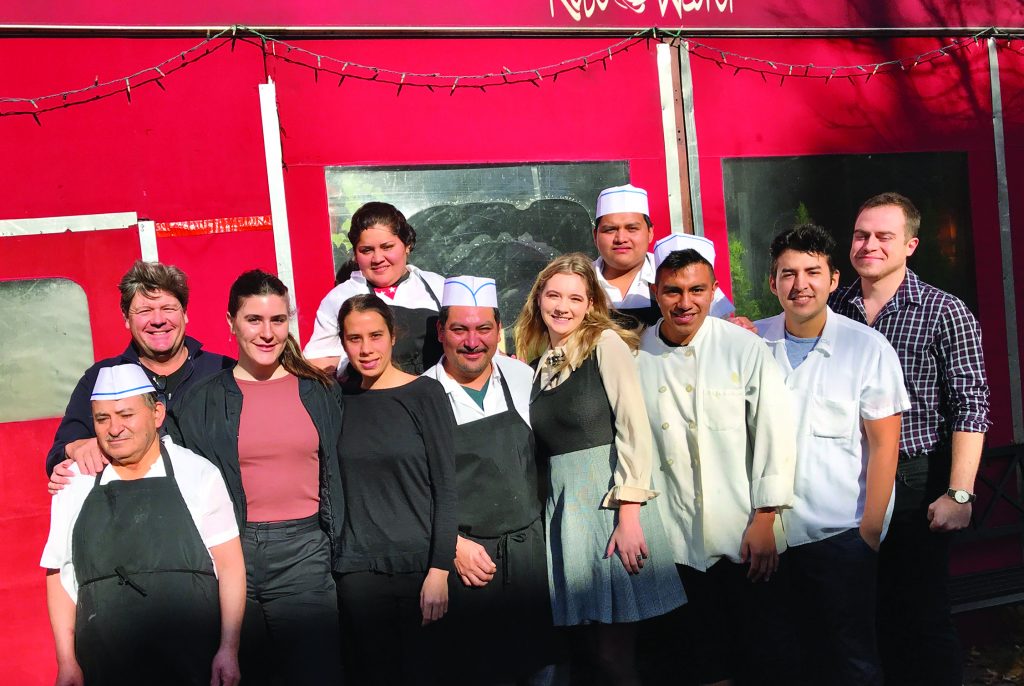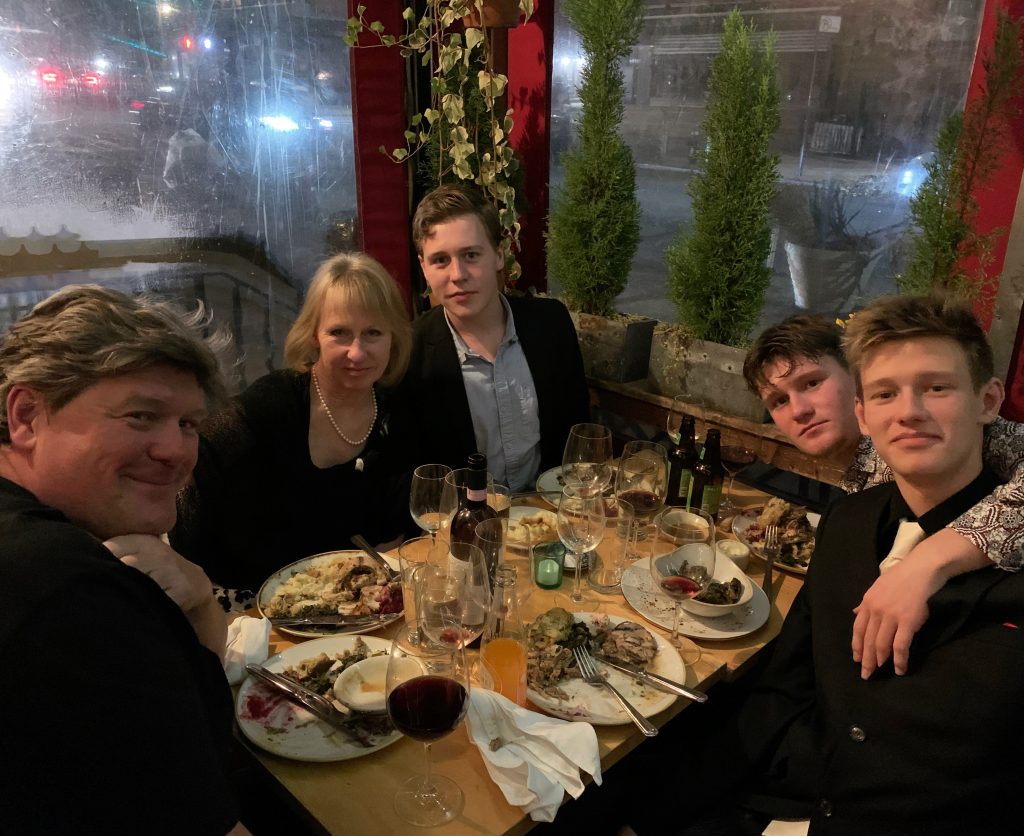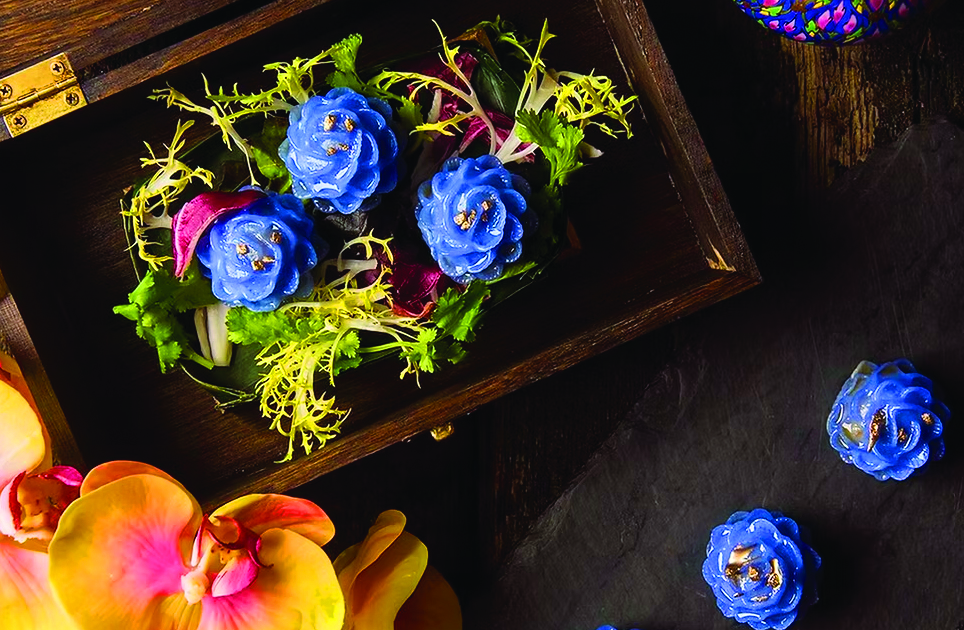
There’s something magical about wandering into a restaurant on a chilly Sunday evening, expecting good food, only to find your expectations wildly exceeded. That’s exactly what happened to my wife and I when we sauntered into The Nuaa Table on a chilly Sunday evening, and found ourselves surrounded by edible works of art.
From the outside, The Nuaa Table is fairly understated, its modern facade blending seamlessly with the restaurant laden streets of Prospect Heights. But inside, the dining room is serene, a warm, modern-brass lined canvas meant to showcase the vibrant masterpieces arriving from the kitchen. The restaurant’s ethos is rooted in the Slow Food Movement, placing emphasis on quality, freshness, and the care that goes into each dish. But there’s more than just nourishment at play here—this is about beauty, about the art inherent in food.
I’ve always believed that food (at its best) should look as good as it tastes. There’s a certain poetry in eating something visually stunning, a childlike glee in devouring art. And at The Nuaa Table, each plate is a meticulously crafted piece of culinary poetry.
Take, for instance, the Chor Moung, a purple blossom dumpling that stole the show before it even reached my mouth. Deep indigo petals, sculpted with delicate precision, dusted in gold flakes—these weren’t just dumplings; they were jewels on a plate. The butterfly pea flower dough gave them a stunning hue, while the savory filling of minced chicken, peanut, and preserved radish offered a perfect contrast to the sweet floral aroma. I almost felt guilty eating them, like I was ruining something too beautiful to touch. Almost.
Then came the E-San Crispy Rice, a textural symphony of crispy Thai sticky rice and creamy trout caviar custard. It was a single, perfect bite that crunched, melted, and danced on my palate. Anchovy Jaew Bong added a salty kick, while pumpkin seeds and citrus kept it playful. This was more than just flavor—it was an experience, an introduction to the whimsical side of Thai cuisine.
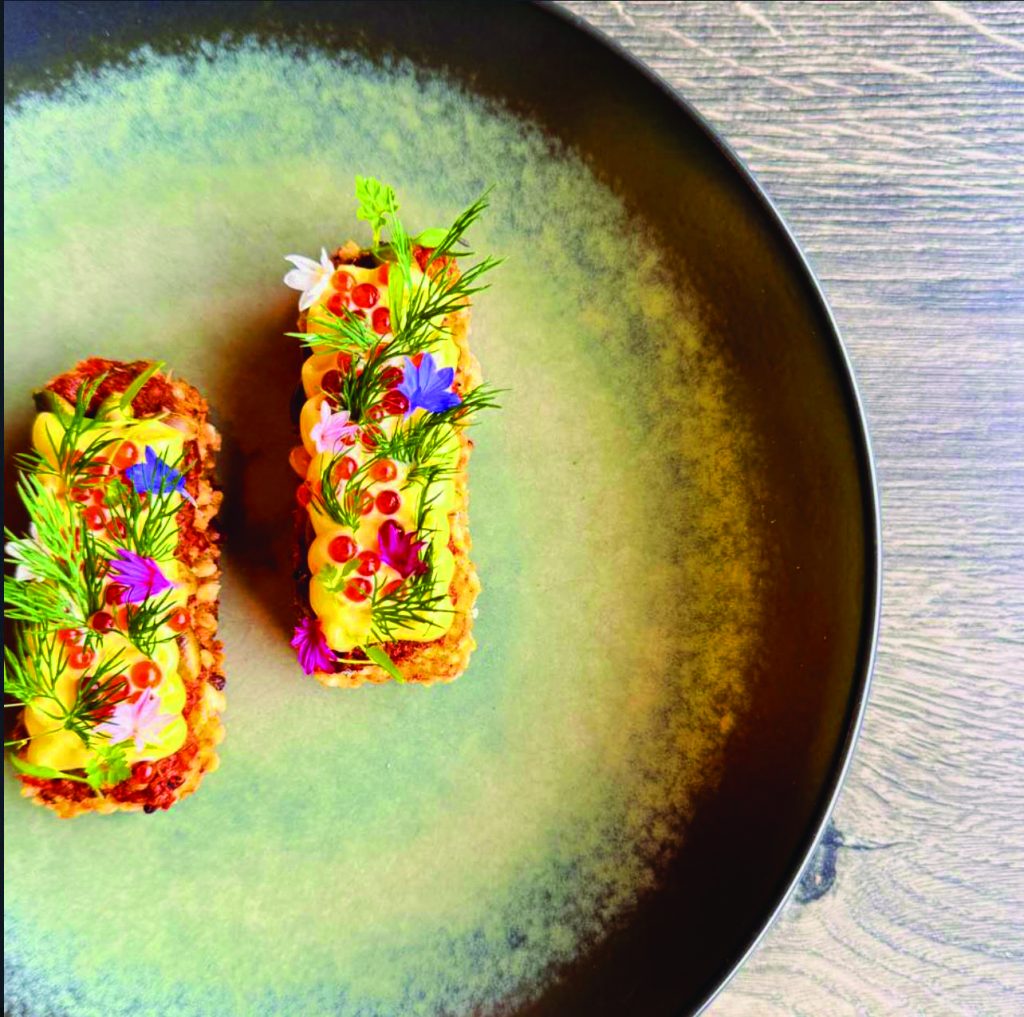
I knew we were in trouble when I made eye contact with my wife across the table. Her eyes said, “We need to order more of this,” and when our waiter came back to the table, that is exactly what we did.
For our main course that evening, we ordered the rice cracker crusted branzino, a fillet so tender and sweet, it practically fell apart at the touch of my fork. It was paired with Pickled Cauliflower and a Sweet Corn Salad, creating a perfectly balanced bite every time. The Chili-Lime Nam Yam added just enough heat to remind you this was Thai cuisine, after all, but never so much that it overpowered the delicate fish. It was decadent, moist, and utterly perfect.
We rounded out our evening with the Northeast Green Papaya Salad, a dish so bright and crispy it woke up my senses from the first bite. The sun-dried shrunken shrimp and peanuts brought a savory crunch, but it was the fermented fish sauce that made it sing. It was hot—no, I mean, hot—but in all the right ways. The kind of heat that warms you from the inside out, perfect for a cold Brooklyn night.
We left The Nuaa Table that evening feeling a warm sense of affection for the place. I have to admit that I did not go to Nuaa Tabe expecting to write about them in this paper, but by the time we were paying the check, I was certain that was what I had to do. I couldn’t stop thinking about those purple blossom dumplings, about the way each dish had been presented with such thought and care. It’s rare to find a place where the food isn’t just delicious but beautiful, where you feel a pang of guilt for disturbing the art on your plate. And yet, disturb it we did.
Maybe that’s the magic of The Nuaa Table—food meant to be admired and then devoured, a fleeting masterpiece that only exists until the last bite. And I already know we’ll be back soon, ready to admire and devour all over again.

